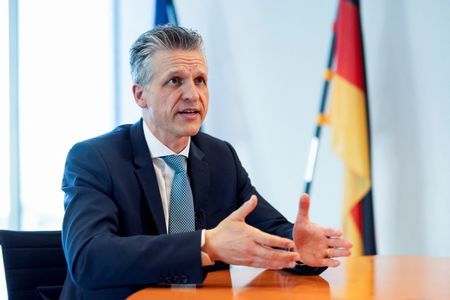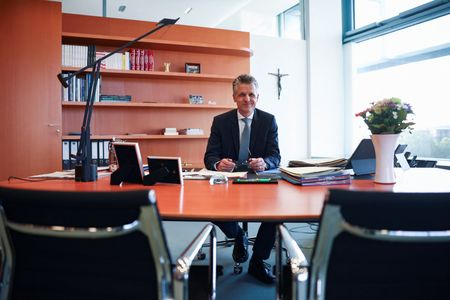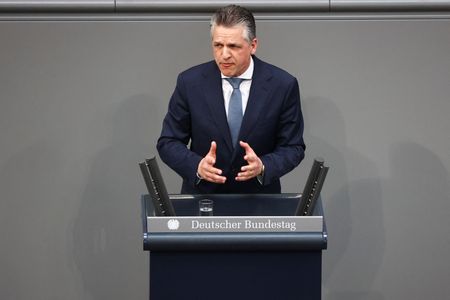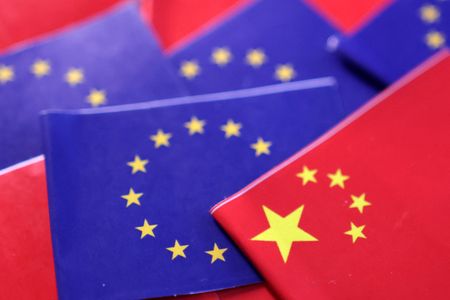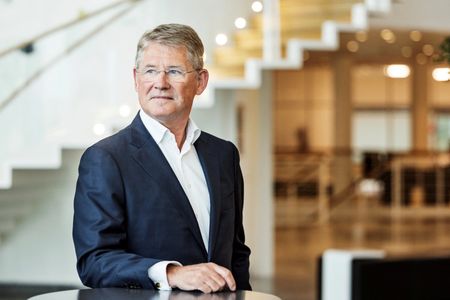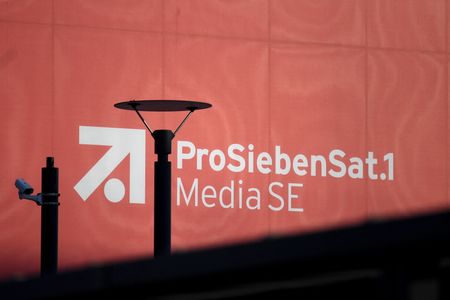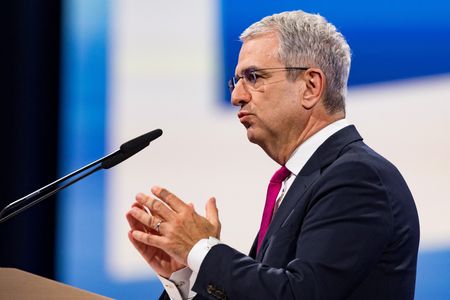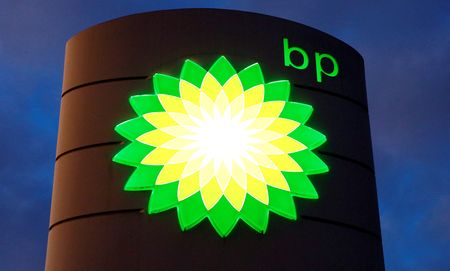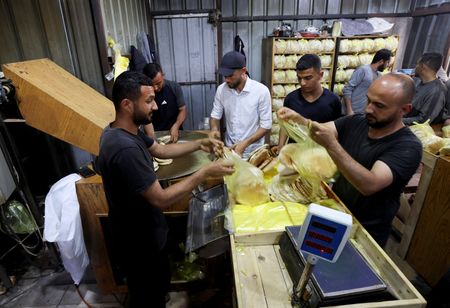By Andreas Rinke and Sarah Marsh
BERLIN (Reuters) -Europe needs to step “out of its comfort zone” and consider much tougher sanctions on Russia, such as bans on gas or uranium, or tapping into frozen Russian state assets, Thorsten Frei, the chief of staff of Germany’s new chancellor, told Reuters.
The EU and Britain announced new sanctions against Russia on Tuesday over its invasion of Ukraine, zeroing in on Moscow’s “shadow fleet” of oil tankers and financial firms that have helped it avoid the impact of other sanctions.
The next round of EU sanctions – currently being prepared – must be strong, including even some measures that might impact other EU states, Frei said in an interview at his new office in the chancellery.
“We must step out of our comfort zone and adopt measures that truly go beyond the status quo,” the conservative politician said.
Asked if that meant European import bans on gas or uranium and tapping into frozen Russian state assets, Frei said: “These are exactly the kinds of measures that would really hurt Russia – and thus achieve the impact we actually intend with sanctions.”
Frei also endorsed calls for sanctions on the Nord Stream gas pipeline through the Baltic Sea.
Chancellor Friedrich Merz, who took office this month, said last week Germany and its allies would move to confiscate frozen Russian assets if legally possible. Discussions about sanctions on Russian energy are ongoing, Merz said.
After Russian President Vladimir Putin refused to accept Europe’s call for a ceasefire, however, the tone in Berlin seems to be hardening further.
“I strongly support going down this path because we have seen in the past that Russia essentially only accepts, acknowledges, and understands clear language.”
‘PLAYING FOR TIME’
Frei accused Putin of having no intention of seeking peace noting that even during peace talks last week with Ukraine in Istanbul Russia’s attacks “continued unabated – they even intensified”.
“He’s playing for time,” Frei said of the Russian leader.
Putin wants to create military facts on the ground, he added, and clearly expects to achieve his war aims militarily: “These are not exactly the best conditions for a quick peace.”
Frei said he could not rule out the possibility that Germany might increase its military aid for Ukraine from €7 billion ($8 billion) in the draft budget for this year. He did not say by how much the aid might increase.
($1 = 0.8830 euros)
(Writing by Sarah MarshEditing by Gareth Jones)

